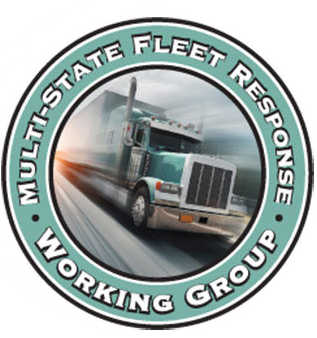
[SatNews] ... by making available for the first time a unique regional economic resilience and business continuity capability that previously did not exist.”
Hughes Network Systems, LLC (HUGHES) announced a strategic information sharing partnership to aid in future disaster preparedness, response, and community resilience.
Under the partnership, Hughes will cooperate to provide information on areas affected by disaster to the Multi-State Fleet Response Working Group allowing responders to more accurately locate operational commercial facilities offering food, gas, accommodation and medical supplies. The Working Group is managing access to the information as a service through a secure online portal for pre-approved disaster response leaders, referred to as the Fleet Open/Closed Service. More information is available here.

“This partnership with Hughes has made it possible to provide critical infrastructure organizations and first responders (and eventually citizens) with real-time information that helps them to meet their basic needs while responding to a disaster, but that’s only the beginning,” said Tom Moran, Executive Director, All Hazards Consortium. “Decision-makers can use the information to help pre-position assets to mitigate the effects of a disaster, as well as improve response efforts and communications to citizens on where they can find open businesses to get coffee, food, gasoline, hotel rooms, medications, water, first aid supplies and other household items. It also serves a larger purpose by making available for the first time a unique regional economic resilience and business continuity capability that previously did not exist.”
The raw data supplied by Hughes will be processed by the All Hazards Consortium’s partner Integrity Consulting and run through visualization software, providing end-users of the service with a graphic representation of the data overlaid on a map of the United States. This enables decision-makers and emergency operators to quickly locate and zoom in/out on problem areas and gain an immediate understanding of the local, regional, and/or national scope of the crisis.
“This partnership, drawing on lessons learned from Superstorm Sandy—one of the most severe disasters in recent memory—has paved the way for private sector organizations to involve themselves with the All Hazards Consortium’s Multi-State Fleet Response Working Group and give back to communities by helping them prepare and respond better,” said Tony Bardo, assistant vice president for Government Solutions at Hughes. “We look forward to working with these organizations to help support this vital disaster response and recovery effort.”
Following Superstorm Sandy, Hughes made information available to the Consortium about the operating status of gas stations, hotels and restaurants—which then enabled the federal government and authorities to rapidly respond to areas that were impacted along the eastern seaboard. As a result, first responders and emergency operators were able to more efficiently assist those communities in the immediate aftermath of the storm. Incoming utilities and their contractors from around the country and Canada quickly found fuel, food and hotel rooms just outside of the blacked out areas, reducing the amount of time required to set up their response operations.

